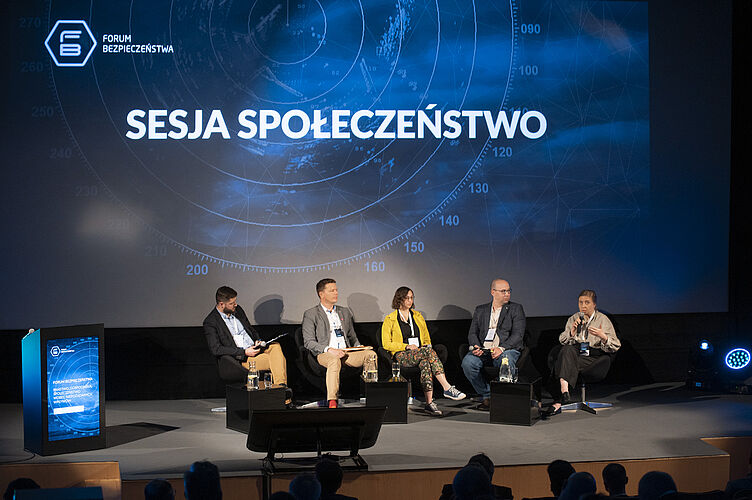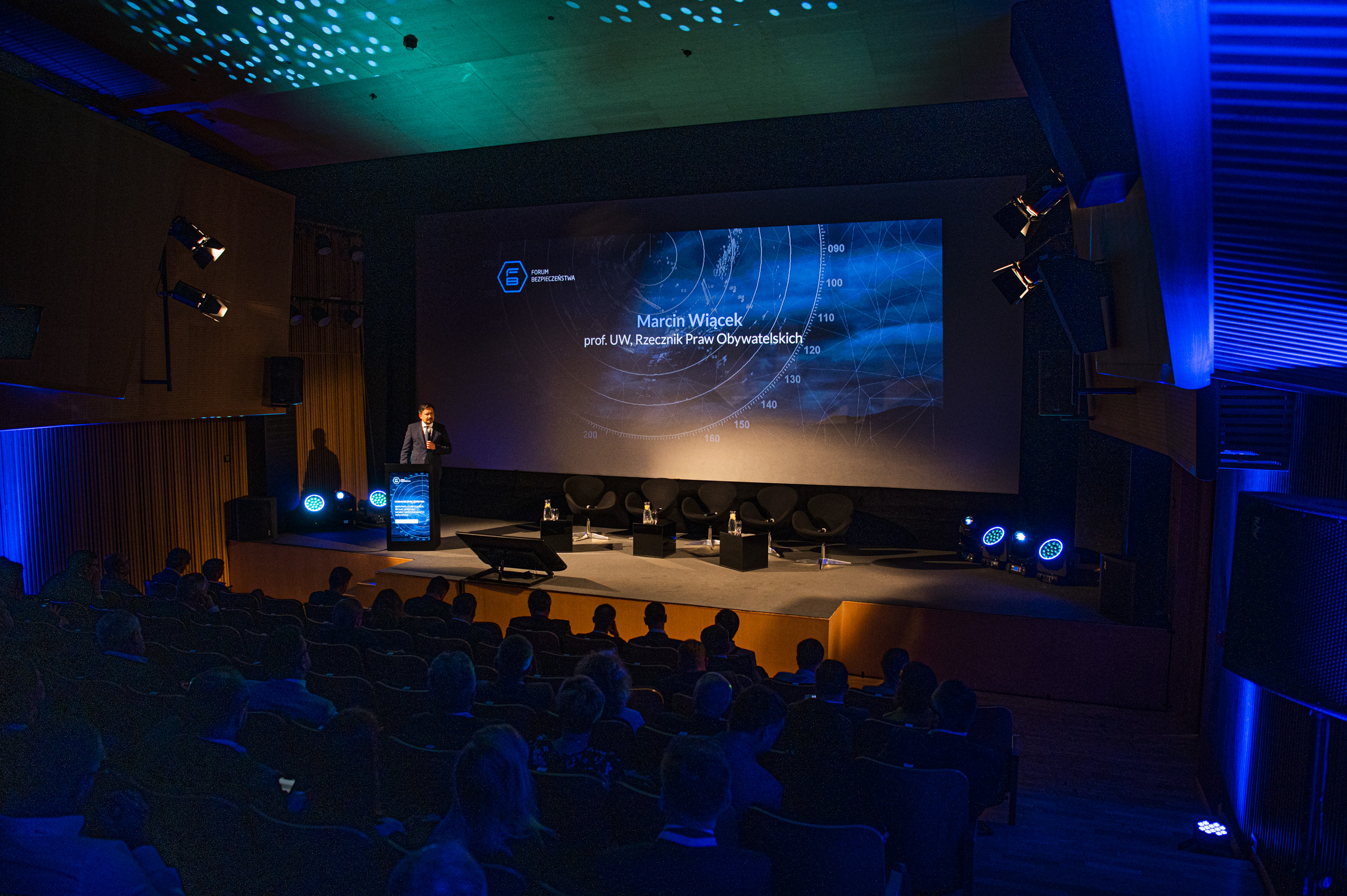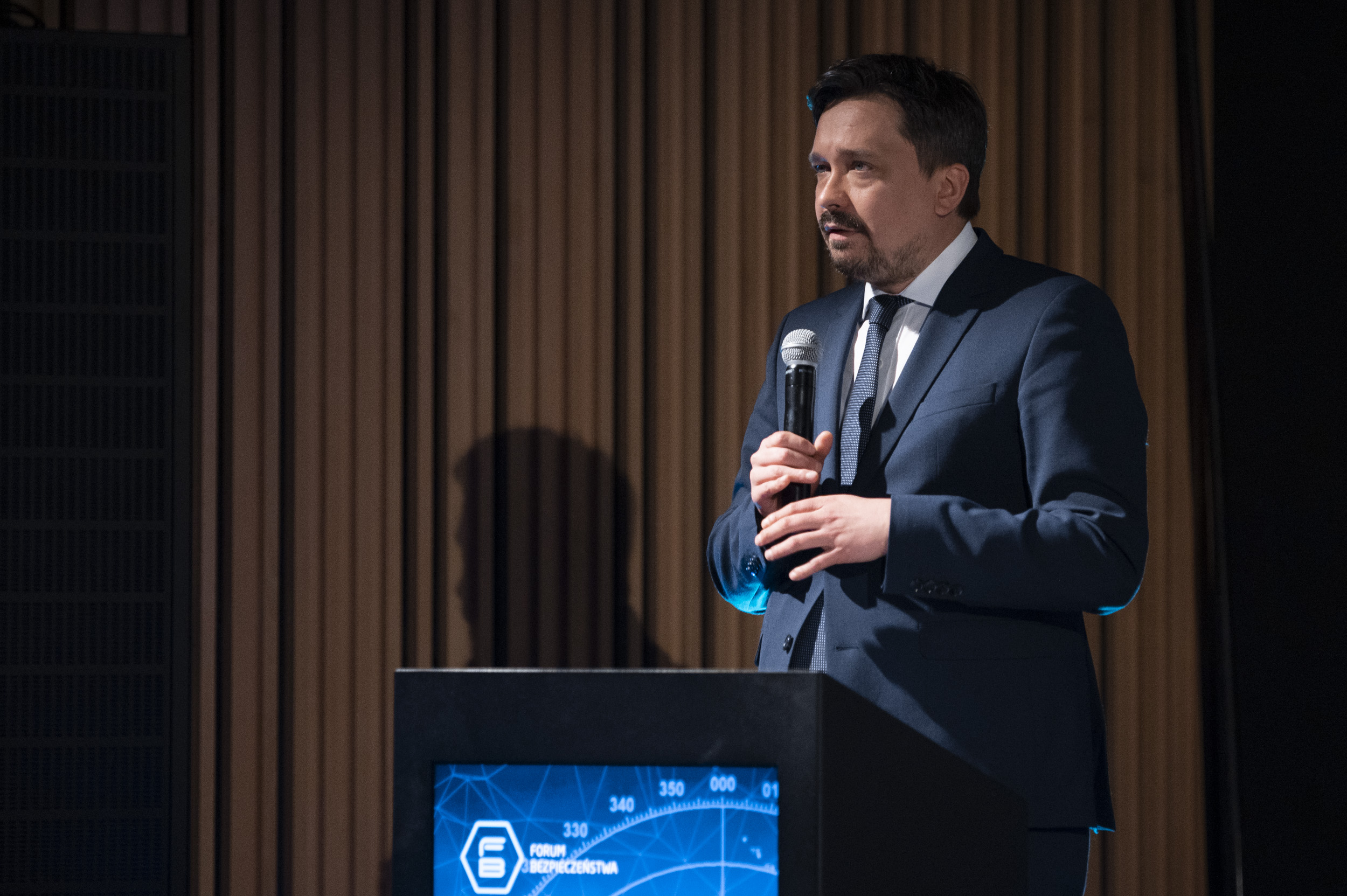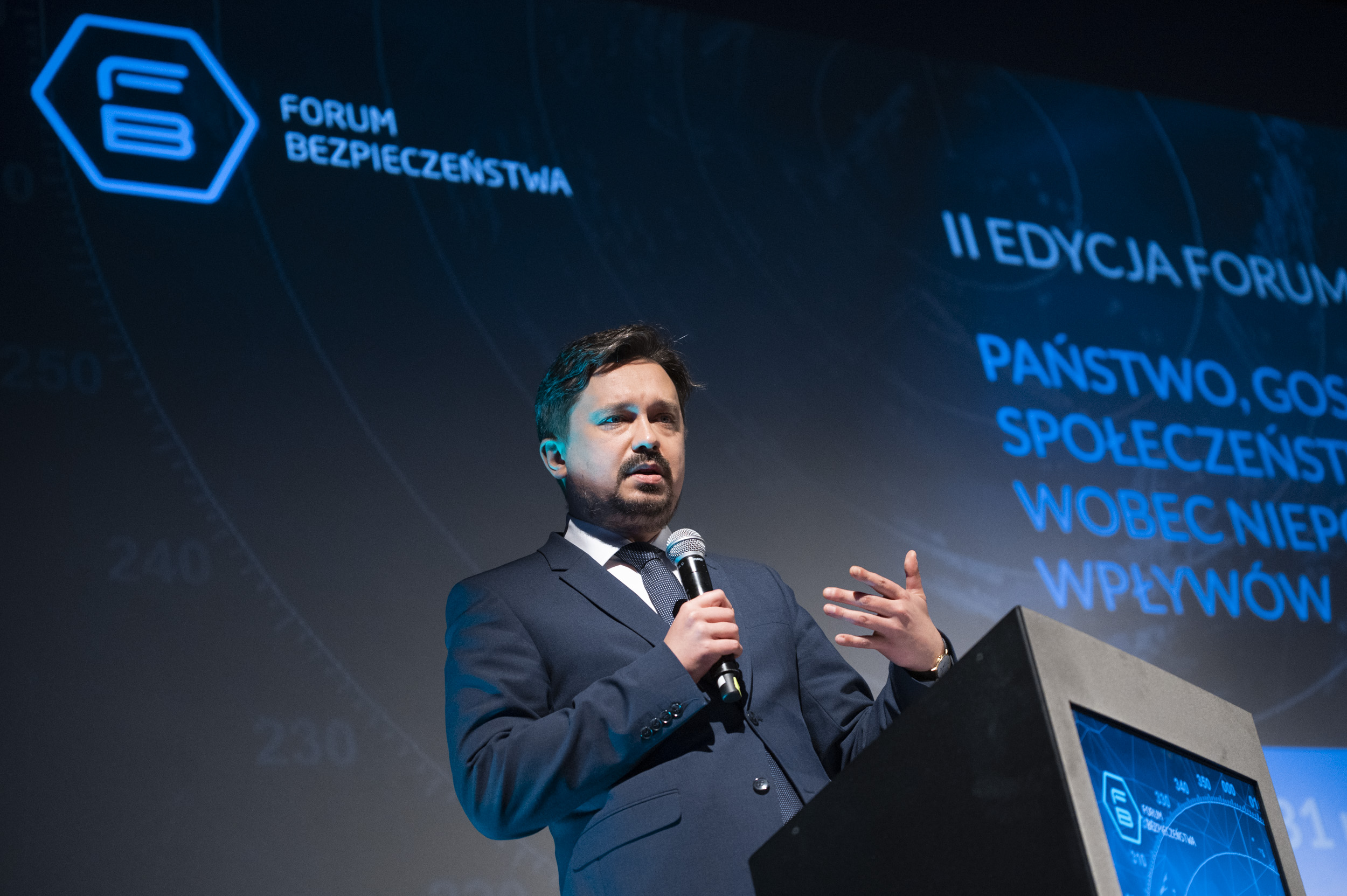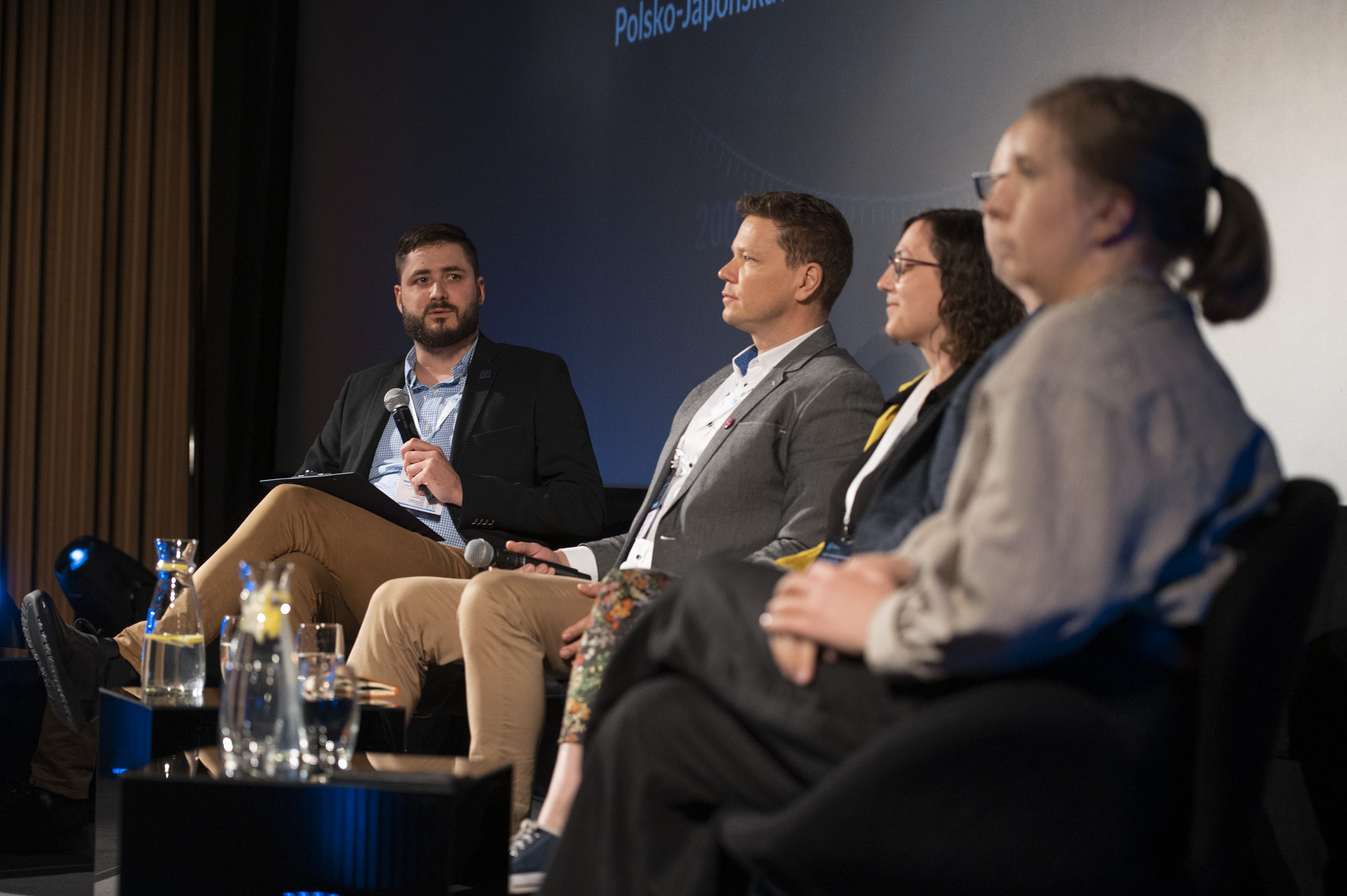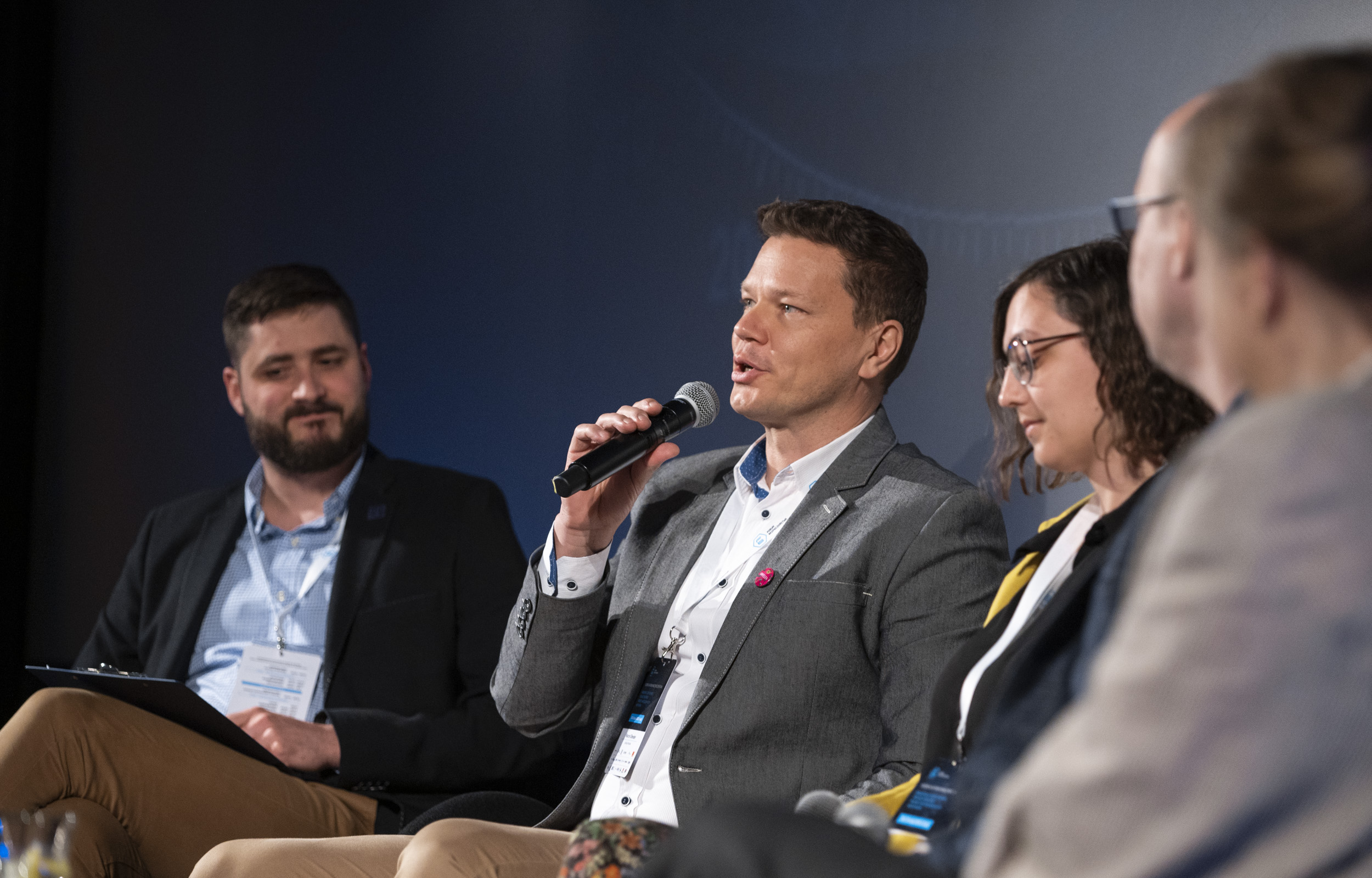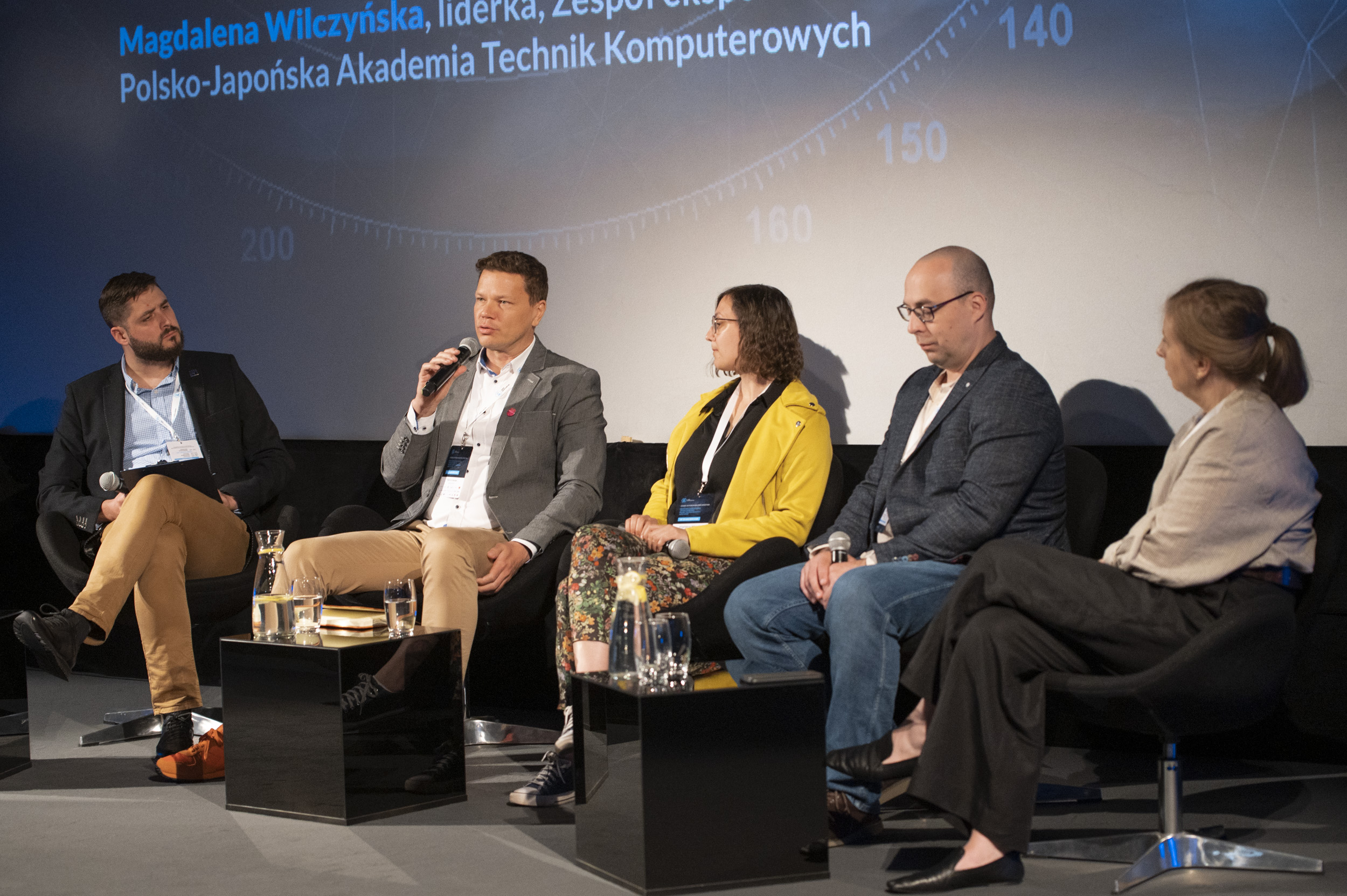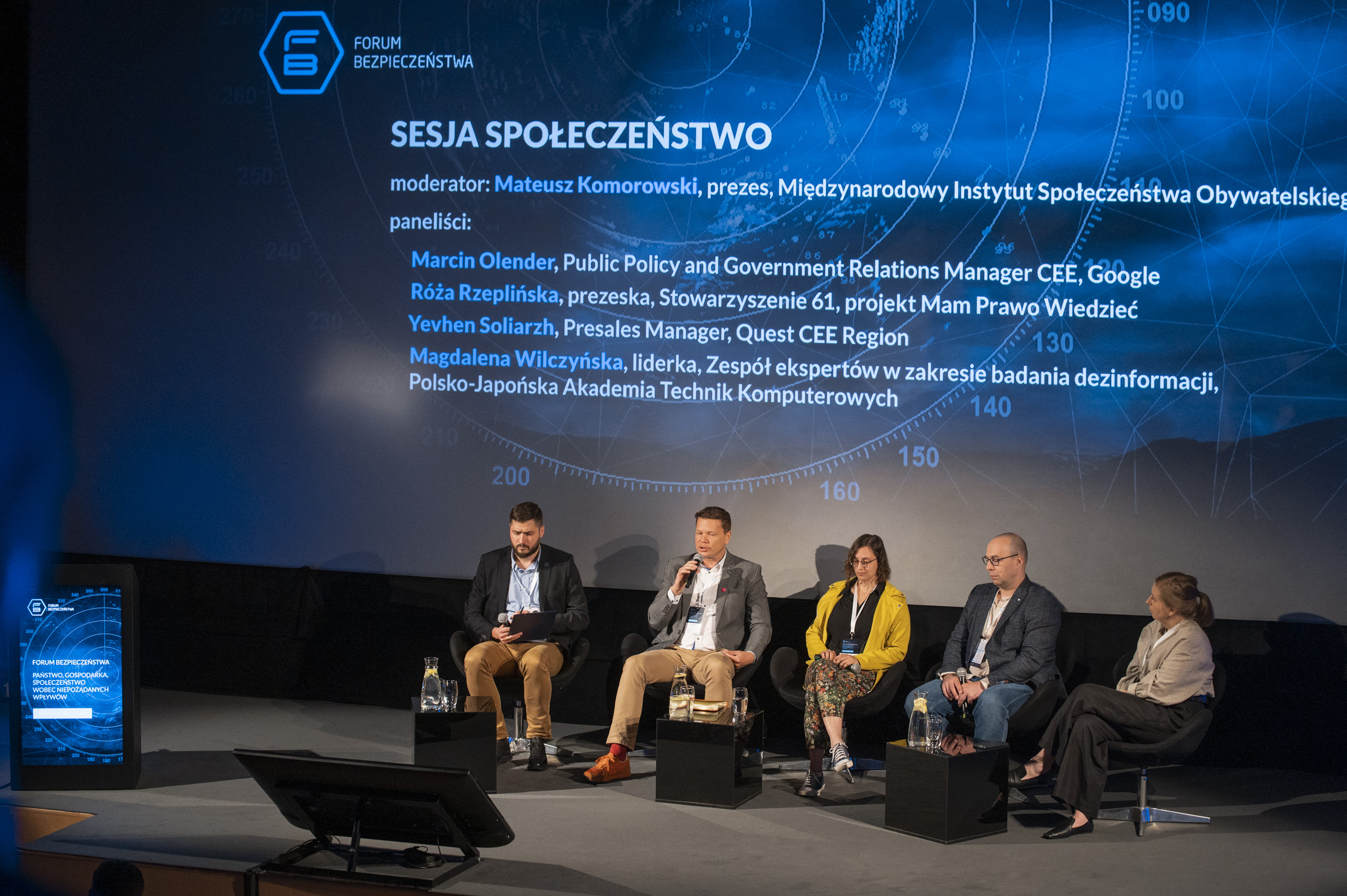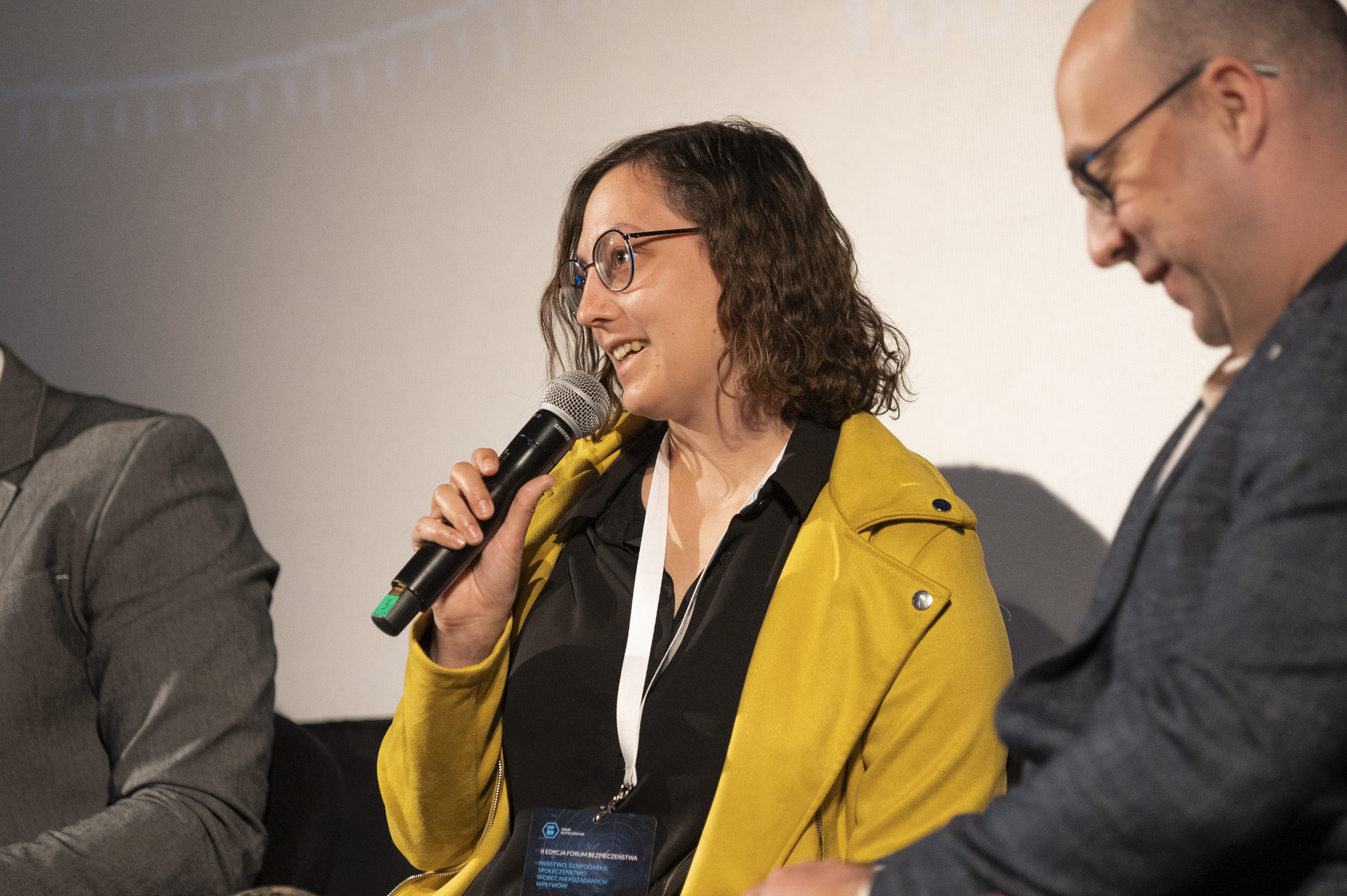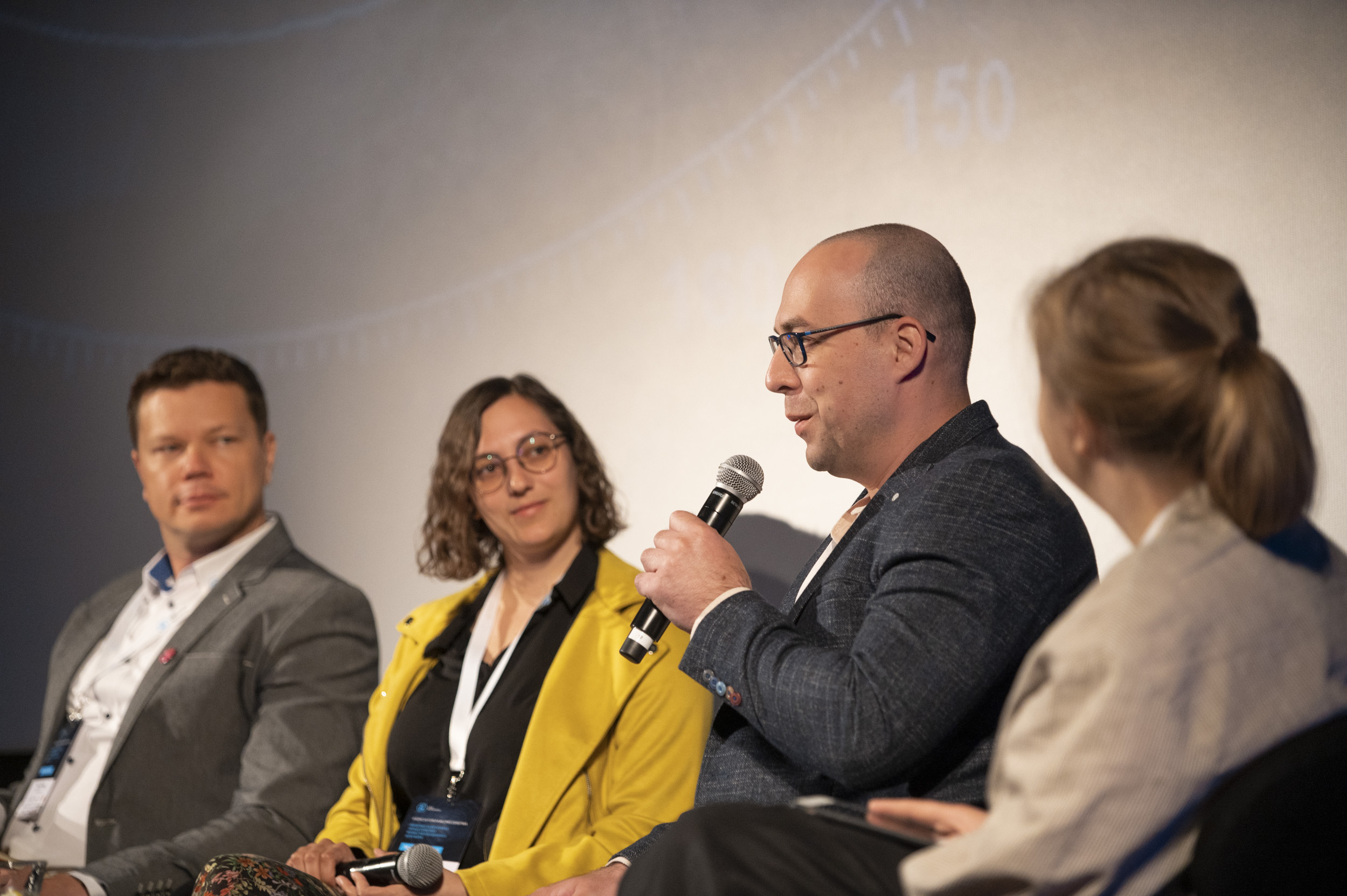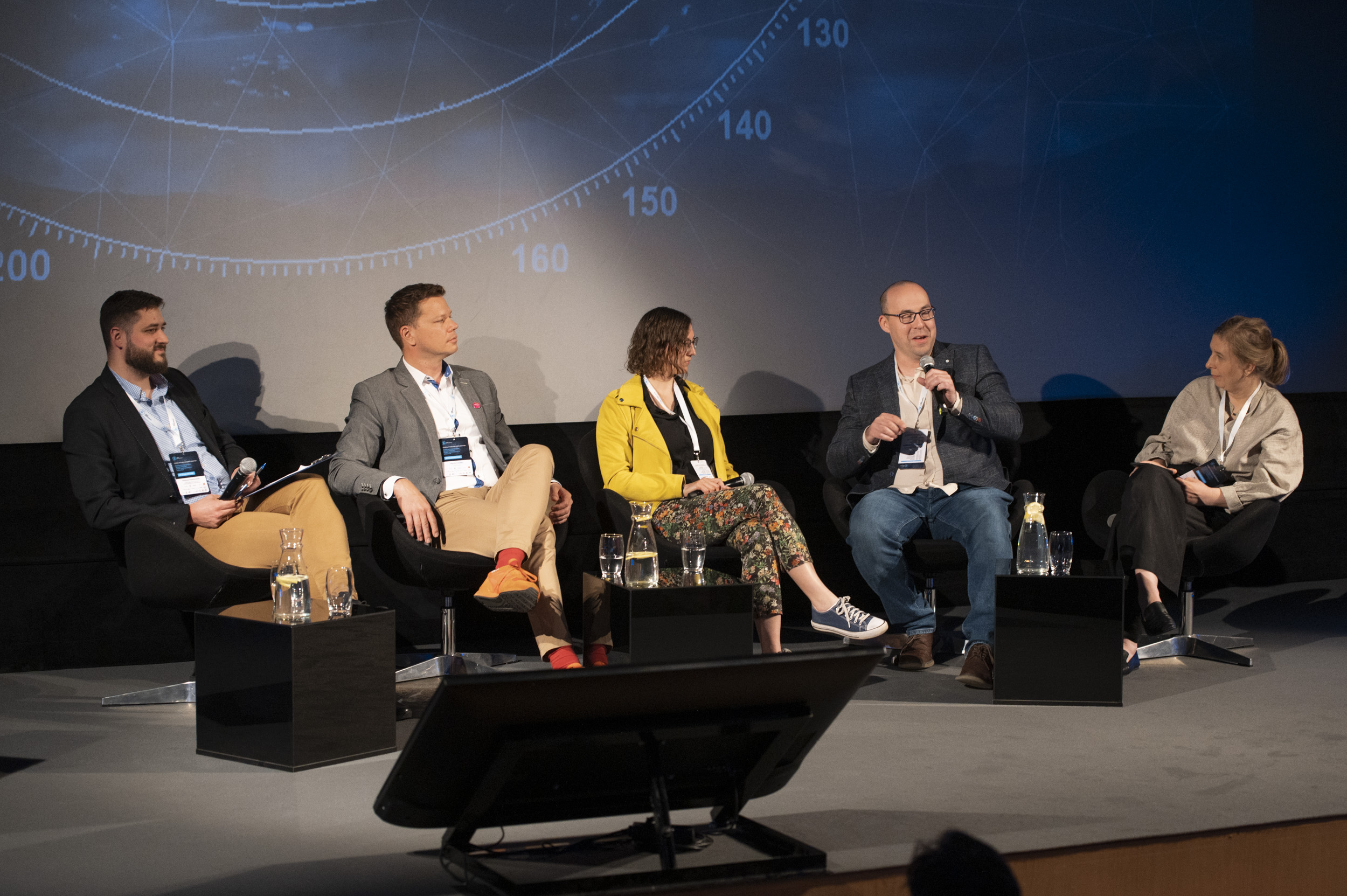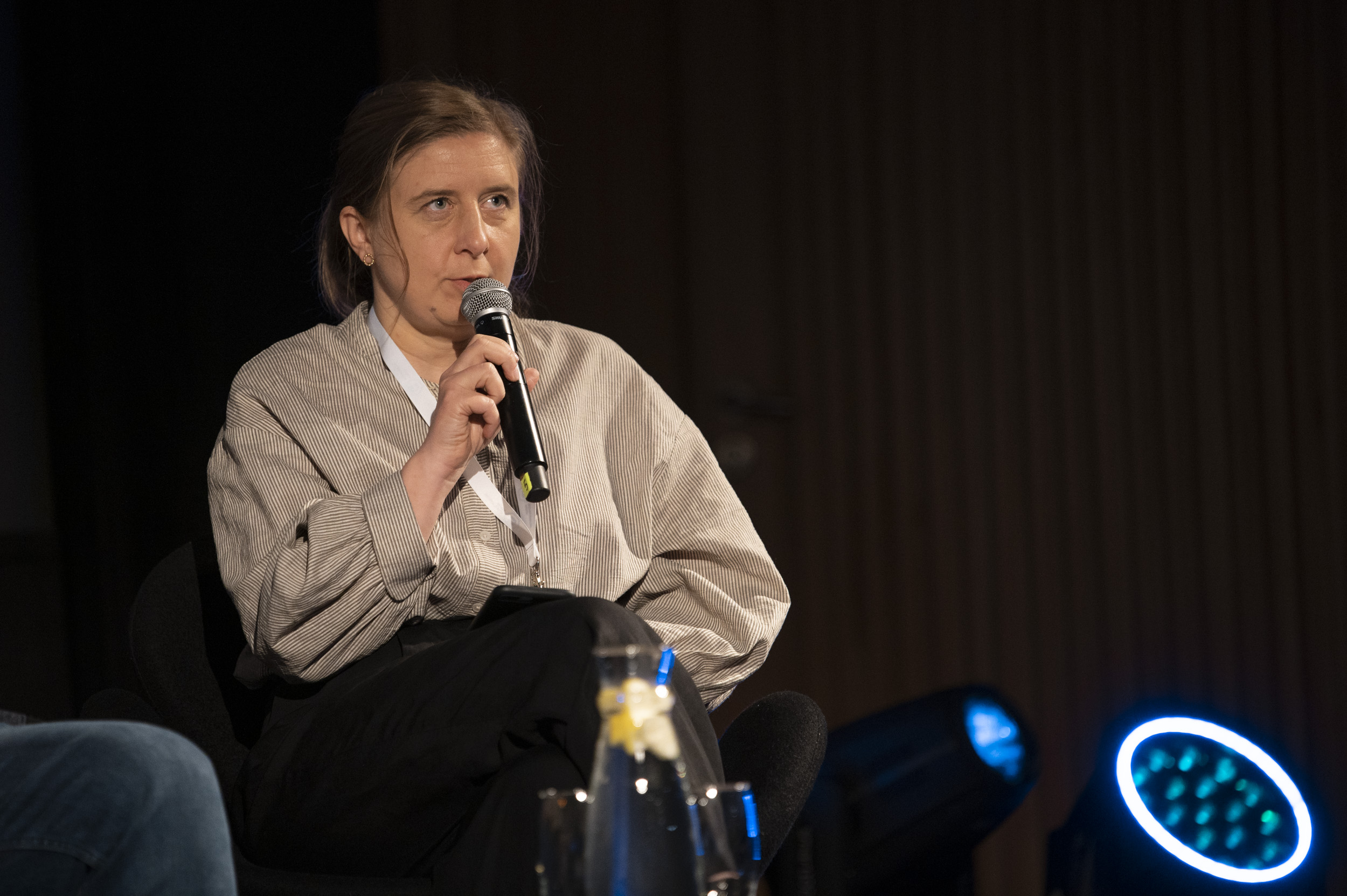II EDITION OF SECURITY FORUM 2023
Experts from the fields of state security, administration and economy discussed contemporary threats affecting democratic procedures or disrupting the functioning of the state, among others. The organizers of the Forum wanted to emphasize the role that strong institutions, civil society, the ability to detect anomalies and abuses early, and the use of new technologies play in building resilience to hostile interference. The Forum's accompanying themes were the reconstruction of Ukraine and cyber security. The participants of the event included MPs, local government officials, representatives of business, academic and non-governmental communities.
The rise of authoritarianism, the Russian invasion of Ukraine and all the unwanted influences that are gaining momentum today are a huge challenge for civil society. The quality of the security system is also determined by citizens, whose involvement in defending against phenomena such as disinformation and cyber attacks is particularly important today. Among other things, these issues were discussed by the invited panelists during the session titled “Society” and hosted by MISO.
The session on society was preceded by an opening speech by Commissioner for Human Rights Prof. Marcin Wiącek, who addressed the topic of disinformation, understood as the dissemination and perpetuation in society of information that is untrue or based on manipulation. In his opinion, the purpose of such activities is to stimulate certain behaviors of society or authorities. “Disinformation can undoubtedly disrupt public order and threaten the security of the state and citizens,” the CHR said. He noted, however, that combating it is a very sensitive issue that touches on the most important values of a democratic state, such as freedom of speech, the press and the transmission of information. He added that it is crucial to respect the principle of proportionality, according to which restrictions on human freedoms are permissible only to the extent that is necessary and essential for the protection of the public interest, when carrying out any activities aimed at ensuring security. “Such interference must be based on unquestionable regulations, because this ensures the predictability of power and counteracts arbitrariness in the functioning of the state,” Marcin Wiącek continued. He then presented several examples of the use of the security argument to introduce solutions that are incompatible with the standards of a democratic state of law. He mentioned, among others, the restriction of media and civil society institutions' access to that part of the country where a state of emergency was imposed in the second half of 2020, and the adoption of an amendment to the Civil Service Act, which excludes former employees of security organs of the People’s Republic of Poland from working in state bodies of III Republic of Poland.
After his speech, it was time for a debate moderated by International Institute of Civil Society President Mateusz Komorowski. The moderator first asked Marcin Olender - Public Policy and Government Relations Manager CEE at Google - to speak, who described the findings of the report “Fog of war: How the Ukraine conflict transformed the cyber threat landscape.” The report prepared by Google analysts shows that Poland has become one of the targets of Russian cyber attacks. These are, on the one hand, attempts to breach the security of systems, and on the other, operations to influence the public. “We consider attempts to influence public opinion through coordinated, massive and sponsored manipulation to be unauthorized,” Marcin Olender said. He added that such influence networks are identified and dismantled by Google in cooperation with other technology platforms. He also stressed that disinformation cannot be viewed only from the angle of Europe, as China is also a serious threat on a global scale. He added that false and manipulated content is increasingly targeted at countries in the global South, where it hits fertile ground, while the West has proven far more resistant to disinformation than we thought. “We cannot trumpet victory, but the conclusions are, for the time being, relatively positive,” he said. He then moved on to the topic of parliamentary elections, adding that as part of its corporate social responsibility, Google “can secure the part of the election process that will take place on our platforms and support the very idea of voting participation.” The company will also moderate content on hate speech, harassment of particular individuals, disclosure of stolen data and practices such as providing false information about candidates. “Information available on the Internet should be reliable,” he concluded.
Magdalena Wilczyńska, a leader of the expert team on disinformation research at the Polish-Japanese Academy of Information Technology, spoke next. According to her, in addition to activity in the educational sphere, there is a need to build partnerships between fact-checking organizations and entities dealing with issues such as the rights of women, LGBT people and migrants. Wilczynska stressed that this would allow for the creation of systems to respond quickly to disinformation and create positive narratives. “Disinformation is directed against NGOs to belittle their activities and expertise,” she added. She also touched on the topic of disinformation in the pre-election period. “Research shows that societies with reliable, independent and subsidized public media are more resistant to disinformation, so our systemic problem with this is also reflected in the condition of Polish society,” the expert continued. Finally, she touched on the topic of unclear control over the activities of the special services and fictitious judicial oversight of the ability to conduct operational activities. “Countering threats to state security can be a cause of restriction of rights and freedoms, but it cannot level them and be non-transparent,” she concluded.
Yevhen Soliarzh, Presales Manager CEE Region at Quest Software, talked about how civil society can defend itself against digital threats “Since today our digital identities are being built from our birth, it is crucial to take care of digital hygiene so as not to share information with entities that may mismanage it,” he began. He went on to point out that online crimes usually start with identity theft, and added that investing forces and resources in taking care of data security is crucial for companies as well. According to him, implementing the “Zero Trust” model, i.e. not trusting users who have access to our data, allows business entities to minimize the likelihood of information leakage and strengthen the resilience of their own systems. When asked about the possibility of online voting in elections in Poland, he said that this requires the creation of secure systems and proper handling of our data online.
President of the 61 Association and the I Have the Right to Know project, Róża Rzeplińska talked about the situation of NGOs: “For the past eight years they have been subjected to pressure - taken by starvation and excluded from public life.” She elaborated that there has been a change in the way they are financed in the direction of transferring huge sums of money to institutions that are the power base. “In the competitions of the National Freedom Institute, the winners were organizations with 46 MP assistants. The projects carried out by these entities did not focus on the mission and goals defined by citizens, but, according to one journalistic investigation, consisted of organizing election meetings,” she said. She added that watchdog organizations dedicated to monitoring and publicizing actions taken by public institutions have no chance to raise funds from Polish taxpayers and are today funded by international foundations. She then moved on to the topic of elections. “On the one hand, we have changes to the election code, on the other hand, the degradation of the election commission and the judicial system, and on the third hand, the increase in the budget of public media from 700 million in 2015 to 2,700 million PLN in 2023 and their subjection to executive power.” She added that a whole system of additional election campaign financing was created based on transferring funds to small, local projects and to institutions, individuals and communities. Róża Rzeplińska also mentioned the conduct of election canvassing by private individuals and added that the funds they allocate for campaigning do not have to be included in reports. “Today we have a system in which it will be difficult to hold equal and free elections without the involvement of civil society, which is already tired,” she concluded. At the end of the debate the audience asked questions and moderator Mateusz Komorowski thanked the participants of the panel.


